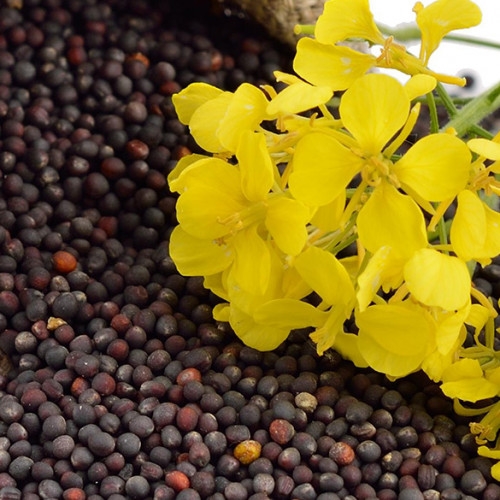China's plans to launch an anti-dumping investigation into Canadian canola have sent prices crashing

Yesterday, rapeseed and canola stock prices tumbled 3.5-7.3% on news that China plans to launch an anti-dumping investigation into canola and chemical products from Canada in response to the latest tariffs on imports of electric vehicles, steel and aluminum from the PRC. But already at the end of the session, quotations recovered almost to the previous level, as the global rapeseed balance for 2024/25 MR continues to deteriorate.
Last week, the Canadian government announced the introduction of a 100% tariff on imports of electric vehicles from October 1, and a 25% tariff on imports of steel and aluminum products from the PRC from October 15.
In May, the US government imposed a 100% tariff on electric vehicle imports from China, and in June, the European Commission also introduced tariffs that vary by Chinese manufacturer.
According to the Ministry of Commerce of China, in 2023 canola imports from Canada increased by 170%, and from January to July 2024, they amounted to 2.65 million tons worth $1.44 billion. China claims Canada is selling canola below cost, causing losses to Chinese farmers. Therefore, the Ministry announced its intention to initiate an anti-discrimination investigation into the tariffs introduced by Canada and to seek a settlement of the dispute in the World Trade Organization (WTO).
November canola futures on the Winnipeg exchange fell 7.3% yesterday morning but later recovered to CAD591/t or $436/t (-4% for the day, -1.3% for the week, -3, 2% per month).
November rapeseed futures on the Paris exchange fell by €18.5/t yesterday morning, but then recovered to €469.75/t or $519.3/t (-0.3% on the day, +1, 3% per week, -1.5% per month).
Traders began to more carefully analyze the forecasts of a decrease in the harvest in the EU to 16.9-18 million tons, which will force an increase in the volume of rapeseed imports by 2-3 million tons. China's refusal of Canadian canola will allow it to increase its supplies to the EU market, which have been minimal in recent years.
China will not be able to replace Canadian canola with other canola, so it will increase imports of vegetable oils, which, against the background of reduced production of sunflower oil, will lead to an increase in oil prices and additional costs for Chinese importers.
In Ukraine, traders continue to buy rapeseed, but after yesterday's collapse of the market, they will try to lower the purchase prices somewhat.
As of September 3, 446,000 ha were sown with winter rapeseed in Ukraine (665,000 ha last year), but the lack of precipitation in August and September (and there won't be any for another 10-14 days) will delay sowing, which will lead to a reduction in the sown area and harvest in 2025 /26 MR. Against this background, farmers are already postponing rapeseed sales until spring, when the shortage of raw materials in the EU will intensify.


